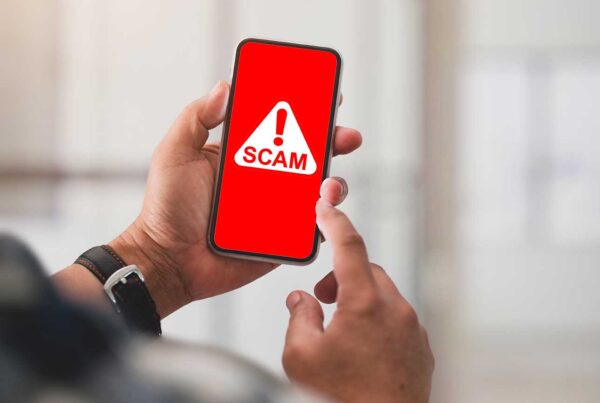With talks of student loan cancellations swirling around, it can be difficult not to get your hopes up by scammers promising student loan forgiveness. How can you tell if the ad you’re seeing is a scam? What are the warning signs you can look for in determining if it’s the real deal? What is the status of student loan forgiveness proposals?
First, it is important to understand that right now U.S. President Biden’s proposals for student loan cancellation are just that, proposals. The proposed amount is $10,000, but there are no set dates for submitting the proposal to congress for approval. Currently, advertisements or promises of student loan debt being forgiven on the federal level are nothing more than scams that should be avoided.
Warning signs of student loan cancellation scams
If you receive a student loan forgiveness message you think may be a scam, here some warnings signs to keep a look out for:
- Forgiveness is promised immediately. Immediate forgiveness is a sure sign of a scammer. While federal programs do exist that will help forgive student loans, none of these options involve the immediate relief scammers are promising. Federal student loan forgiveness can take about five to 10 years before an individual is qualified, while working and making payments in the meantime.
- An upfront fee is needed for forgiveness. A company charging before helping you is a sure way to spot a scam. Paying an upfront fee could result in further scams, not receiving forgiveness and losing your money.
- Asked to give sensitive information. Scammers may claim they need a variety of personal information in order to “confirm your identity” and cancel your student debt. This information may include your Social Security number and your Federal Student Aid ID, and they may request the information either by phone or email. This information should not be given and may be used to steal your identity.
- Affiliation with a government agency. Companies will use logos, names and titles that are affiliated with government agencies to legitimize themselves. But the U.S. Department of Education and the U.S. Treasury Department do not partner with any outside companies for any federal student loan programs. If the website that is listed with the company is a government website, it will end in “.gov”. If there is a company phone number listed, enter it into a search engine. If it is the real deal, it should come up as belonging to a legitimate government office.
- Use of pressuring tactics. Companies may try to use high-pressure sales tactics in order to reduce the amount of time you have to research their legitimacy as a company. The more time you can do your research, the less likely you are to fall for a scam. This is why scammers pressure you to pay the fee up front and give personal information right away.
- Pressure to sign forms giving power of attorney. Signing a power of attorney form gives the company a written agreement that they can talk to your federal loan servicer on your behalf. With this agreement, the company can make decisions regarding your federal loans and change your information.
How Verve can help
Verve is always working to ensure your personal information is secure and safe. If you think your Verve account is at risk because you’ve given out personal information or been the victim of a scam, call Verve at 800.448.9228 or visit a branch near you. One of our team members can review your account activity and guide you how to safeguard you and your personal information against further scams. Learn more about scams and ways to keep your financial information secure.





 Federally Insured by NCUA |
Federally Insured by NCUA |  Equal Housing Opportunity |
Equal Housing Opportunity |